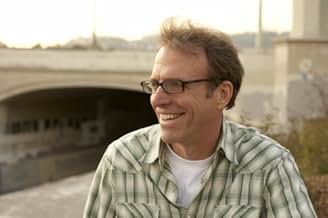Kirby Dick's exposé about the American movie ratings board.Kirby Dick's exposé about the American movie ratings board.Kirby Dick's exposé about the American movie ratings board.
- Director
- Writers
- Stars
- Awards
- 4 wins & 3 nominations total
Clark Baker
- Self - Private Investigator
- (as Clark)
- Director
- Writers
- All cast & crew
- Production, box office & more at IMDbPro
Featured reviews
A look into the mysterious organization that decides what rating a film is given. And all sorts of other issues/arguments that are created because of it. Numerous actors, directors, producers, former MPAA raters and critics share their thoughts on the good and bad of the highly secretive organization.
I have always found "rating reasons" funny and often absurd, which is why I make my own when writing these things. I have also always liked to look into second opinion on things so maybe whoever reads my little IMDb reviews will get that from them. Since, the often disturbing fact for film makers is the rating is something they have to live with and discussing it with the people who decided it is virtually not an option. And that ultimately decides what theaters decided to show it and how much, which is essentially how films money.
The reason as many of you know for the infamous NC-17 rating is sexual content, especially if it is explicit, and that is basically the focus of this film. Which is both good and bad. Good, because they do a pretty good job comparing R-rated and NC-17 rated sex scenes which are not that different. But bad, because the issue of violence (in my opinion the most potentially objectionable thing shown in film) is attended to on a small scale. There are violent PG-13 movies (Ah-nuld's "The 6th Day" for one) which include bone breaking, dismemberment, and you get the picture. While on the other side you have R-rated movies with really minimal or much more accurate depiction of violence (Michael Mann's "Heat" for one). Yet violence as entertainment is condoned, but showing kids what violence really looks like is not. Darren Aronofsky and Kevin Smith make the film's only points on violence and it'll leave you wanting for more.
Also there wasn't a comparison to other countries rating system, just a mention that those systems are a little less absurd, which is true if you look at the rating sections on most IMDb film profiles, but some thought here would have been invaluable to this film's argument.
However, this remains a pleasantly fresh documentary that many, but mainly John Waters (haha), have been waiting for. 8/10
Not Rated, contains: sexual material and some violent clips - There are many clips of sex scenes shown, but are shown and discussed from a critical perspective. The few violent scenes are discussed in the same manner. So bring your kids! They'll finally know what "it's not for you" means.
I have always found "rating reasons" funny and often absurd, which is why I make my own when writing these things. I have also always liked to look into second opinion on things so maybe whoever reads my little IMDb reviews will get that from them. Since, the often disturbing fact for film makers is the rating is something they have to live with and discussing it with the people who decided it is virtually not an option. And that ultimately decides what theaters decided to show it and how much, which is essentially how films money.
The reason as many of you know for the infamous NC-17 rating is sexual content, especially if it is explicit, and that is basically the focus of this film. Which is both good and bad. Good, because they do a pretty good job comparing R-rated and NC-17 rated sex scenes which are not that different. But bad, because the issue of violence (in my opinion the most potentially objectionable thing shown in film) is attended to on a small scale. There are violent PG-13 movies (Ah-nuld's "The 6th Day" for one) which include bone breaking, dismemberment, and you get the picture. While on the other side you have R-rated movies with really minimal or much more accurate depiction of violence (Michael Mann's "Heat" for one). Yet violence as entertainment is condoned, but showing kids what violence really looks like is not. Darren Aronofsky and Kevin Smith make the film's only points on violence and it'll leave you wanting for more.
Also there wasn't a comparison to other countries rating system, just a mention that those systems are a little less absurd, which is true if you look at the rating sections on most IMDb film profiles, but some thought here would have been invaluable to this film's argument.
However, this remains a pleasantly fresh documentary that many, but mainly John Waters (haha), have been waiting for. 8/10
Not Rated, contains: sexual material and some violent clips - There are many clips of sex scenes shown, but are shown and discussed from a critical perspective. The few violent scenes are discussed in the same manner. So bring your kids! They'll finally know what "it's not for you" means.
America is the land of the free, so in order to constrain people to do what you want them to do, you have to let them think it's their choice. How do you do that? You create a completely anonymous committee, supposedly composed of concerned parents, to rate the films that appear and, depending on that rating, they will get more or less media coverage, distribution, target audience size. You also finance this body with the money of the seven largest film studios in the US. This functioning censorship committee is called the MPAA.
The film is highly biased, to a point where it gets a little annoying, but the information contained in it is sound, proved and makes one think about the way public opinion is manipulated, ever so slightly, towards a desired average point of view. If you ever wondered how Americans can seem so ordinary, yet have completely different opinions about the same subjects as any other people, then this movie will answer part of that question. Very insightful is the presentation of the seven major film studios who own 95% of the American film industry, parts of larger conglomerates that own 90% of all mass-media. Also interesting, the role of the clergy in movie rating. Yes, I did say clergy, as in priests. In the appeals commission there are always an episcopalian priest and a catholic one. No other religions get to add their input.
A must see movie, not a conspiracy theory film, but certainly one that is against the system. The system here being the absurd movie rating system of the MPAA.
The film is highly biased, to a point where it gets a little annoying, but the information contained in it is sound, proved and makes one think about the way public opinion is manipulated, ever so slightly, towards a desired average point of view. If you ever wondered how Americans can seem so ordinary, yet have completely different opinions about the same subjects as any other people, then this movie will answer part of that question. Very insightful is the presentation of the seven major film studios who own 95% of the American film industry, parts of larger conglomerates that own 90% of all mass-media. Also interesting, the role of the clergy in movie rating. Yes, I did say clergy, as in priests. In the appeals commission there are always an episcopalian priest and a catholic one. No other religions get to add their input.
A must see movie, not a conspiracy theory film, but certainly one that is against the system. The system here being the absurd movie rating system of the MPAA.
This movie is informative, but also funny and clever and kind of mind-blowing. It's not for the faint of heart because it contains quite a bit of graphic footage to illustrate the point that the ratings board is totally arbitrary (in fact, one former board member says there is absolutely no training or standards -- you come in on your first day and start to rate movies). That may seem not to matter, but it matters quite a bit to the film makers whose films are being rated and several appear in the film and make very strong arguments for why the rating their film received was unfair. There are also interviews with several other people (like a free speech lawyer) who add context to Kirby Dick's expose. This really is a must see for anyone who cares about movies and it's a lot of damn fun too.
Since the Hays Code, filmmakers have had a lot more freedom over the content of their films. However, the MPAA ratings board still does exercise a certain de facto censorship power. Most people do not realize this.
"This Film is not Yet Rated" exposes the arbitrariness, secrecy, and bias of the MPAA ratings board and makes the viewer question why movies receive the ratings they do.
Kirby Dick puts together a nice cross-section of directors and "talking heads" who discuss the MPAA ratings board's biases when it comes to realism, sex, violence, gay themes, and other taboo issues in films.
Dozens of major directors have had problems with the MPAA ratings board - they either received the NC-17 (or the old "X") rating or had to cut their films to meet the requirements of the ratings board. Some examples are: Kubrick, Tarantino, Lynch, Woo, Friedkin, Peckinpah, Aronofsky, and countless others.
This film exposes the fact that the ratings board is made up of people who are given NO criteria and NO training for rating films, so they basically use their own personal (and obviously heavily biased) judgments to decide what rating a particular movie should receive.
This is an important film because so few people realize how movies are rated in the U.S. Even fewer realize how problematic (biased, anti-democratic, non-transparent, not accountable) our system is.
It is also well put together, so it is easier to watch than most documentaries.
I would have liked to have heard more comparisons between the U.S. rating system and others worldwide, something that was only briefly touched upon.
9 out of 10
"This Film is not Yet Rated" exposes the arbitrariness, secrecy, and bias of the MPAA ratings board and makes the viewer question why movies receive the ratings they do.
Kirby Dick puts together a nice cross-section of directors and "talking heads" who discuss the MPAA ratings board's biases when it comes to realism, sex, violence, gay themes, and other taboo issues in films.
Dozens of major directors have had problems with the MPAA ratings board - they either received the NC-17 (or the old "X") rating or had to cut their films to meet the requirements of the ratings board. Some examples are: Kubrick, Tarantino, Lynch, Woo, Friedkin, Peckinpah, Aronofsky, and countless others.
This film exposes the fact that the ratings board is made up of people who are given NO criteria and NO training for rating films, so they basically use their own personal (and obviously heavily biased) judgments to decide what rating a particular movie should receive.
This is an important film because so few people realize how movies are rated in the U.S. Even fewer realize how problematic (biased, anti-democratic, non-transparent, not accountable) our system is.
It is also well put together, so it is easier to watch than most documentaries.
I would have liked to have heard more comparisons between the U.S. rating system and others worldwide, something that was only briefly touched upon.
9 out of 10
Kirby Dick is a filmmaker I wasn't aware of before This Film is Noy Yet Rated, but now he is assuredly on my radar, if only for the determination in pulling off his main idea. Like Super Size Me, this documentary has a near-gimmick to it; Dick hires a private investigator in order to track down the anonymous "parents" who decide why a movie will be rated R over PG-13, and NC-17 instead of R. This even leads- more intriguingly- into the more deceptive group of appellant board members of the MPAA. So on the one hand the filmmaker has this extremely entertaining, guerrilla-style aspect to his film, with a hand-held camera in one moment in a fast-food place that draws attention to him, and detectives who will go to any length to get results. On the other hand he gets great interviews and clips and history about the film industry in the US and the near fascist style of the MPAA in relation to the several (corporite) studios.
As a film buff this film already had my interest long before I saw it. For too long the topic of film ratings have both infuriated and fascinated me. Much of what ends up going on with filmmakers's battles with the MPAA to get their R (and indeed the difference between millions of dollars in grosses) instead of an NC-17 is staggering. That Kirby Dick get such insight out of the insiders (two of which former MPAA people, and two who kept anonymous), filmmakers, business people, and other types within the industry, is a good help to add to the basic argument that there is some inherent problems with the current ratings system in the country. This is accentuated in comparisons between NC-17 and R rated sex scenes from other movies, and clips from films that received the NC-17- or close to it- and the inanities and problems filmmakers have to get their whole vision against people who, of course, are not that creative. There are issues of gay sex in movies, how violence is vs. sex in allowance in ratings, and in the end how big business (and religion) are behind the scenes if not pulling strings then giving complete influence.
All of this as a documentary ends up being pulled fantastically off, as it does at the core what a documentary mostly should- stir up conversation about the topic(s), and at the same time still being entertained to an extent. And Kirby Dick even has a slight Michael Moore tinge to him as he goes full-on after his subjects; one of which reminded me of Moore's own confrontation with Charleton Heston, as Dick puts himself in split screen with animated caricatures of his callers. But Dick also is smart enough to put such subject matter with good doses of humor. I loved the little animated explanation as to what each rating means (including dead orphan and Almodovar jokes), and as he revealed with a near relish the full facts on every member (most shockingly the appellate members). Even if you just have a casual interest in movies it should be worth your while, and especially if you're a parent- and try not to let the NC-17 rating deter you as it's in part just in spite of the mirror put up to the ratings board itself- it's especially prudent to see. It's got both tongue-in-cheek and dead-serious aspirations, and all the while making Jack Valenti look worse and worse. It's biased, to be sure, but for the right reasons.
As a film buff this film already had my interest long before I saw it. For too long the topic of film ratings have both infuriated and fascinated me. Much of what ends up going on with filmmakers's battles with the MPAA to get their R (and indeed the difference between millions of dollars in grosses) instead of an NC-17 is staggering. That Kirby Dick get such insight out of the insiders (two of which former MPAA people, and two who kept anonymous), filmmakers, business people, and other types within the industry, is a good help to add to the basic argument that there is some inherent problems with the current ratings system in the country. This is accentuated in comparisons between NC-17 and R rated sex scenes from other movies, and clips from films that received the NC-17- or close to it- and the inanities and problems filmmakers have to get their whole vision against people who, of course, are not that creative. There are issues of gay sex in movies, how violence is vs. sex in allowance in ratings, and in the end how big business (and religion) are behind the scenes if not pulling strings then giving complete influence.
All of this as a documentary ends up being pulled fantastically off, as it does at the core what a documentary mostly should- stir up conversation about the topic(s), and at the same time still being entertained to an extent. And Kirby Dick even has a slight Michael Moore tinge to him as he goes full-on after his subjects; one of which reminded me of Moore's own confrontation with Charleton Heston, as Dick puts himself in split screen with animated caricatures of his callers. But Dick also is smart enough to put such subject matter with good doses of humor. I loved the little animated explanation as to what each rating means (including dead orphan and Almodovar jokes), and as he revealed with a near relish the full facts on every member (most shockingly the appellate members). Even if you just have a casual interest in movies it should be worth your while, and especially if you're a parent- and try not to let the NC-17 rating deter you as it's in part just in spite of the mirror put up to the ratings board itself- it's especially prudent to see. It's got both tongue-in-cheek and dead-serious aspirations, and all the while making Jack Valenti look worse and worse. It's biased, to be sure, but for the right reasons.
Did you know
- TriviaThe MPAA announced that starting in March of 2007, it will change their policy and allow filmmakers to cite other film's ratings as comparison. The MPAA will also provide information about the demographics of its board.
- Quotes
John Waters: I also heard on 'A Dirty Shame' - and I have no proof of this - that there were doctors involved... and that some of the kinkier terms, like felching and stuff, that they explained to the MPAA what felching meant. Now, I would like to have heard that because felching, no one has ever done felching. Felching is when you fuck someone and suck your own cum out of their asshole. Well, I know a lot of perverts and I don't know anyone who's done that.
- Crazy creditsAt the end credits a count of what the film shows: FUCKS(OR DERIVATIONS OF): 20 MOTHERFUCKERS: 3 HUMPS: 220 NIPPLES: 10 INTERCOURSE WITH PIE: 1 CARTOONS/PUPPETS IN SEXUAL POSITIONS: 15 SPLOSHING: 1 FELCHING: 0
- ConnectionsEdited into This Film Is Not Yet Rated: Deleted Scenes (2009)
- SoundtracksAppeals Members
Written and Performed by Michael S. Patterson (ASCAP)
Courtesy of Absynthe Zelery Music (ASCAP)
- How long is This Film Is Not Yet Rated?Powered by Alexa
Details
- Release date
- Countries of origin
- Language
- Also known as
- Los censores de Hollywood
- Filming locations
- Production companies
- See more company credits at IMDbPro
Box office
- Gross US & Canada
- $306,845
- Opening weekend US & Canada
- $30,664
- Sep 3, 2006
- Gross worldwide
- $347,240
- Runtime
- 1h 38m(98 min)
- Color
- Sound mix
- Aspect ratio
- 1.85 : 1
Contribute to this page
Suggest an edit or add missing content
































